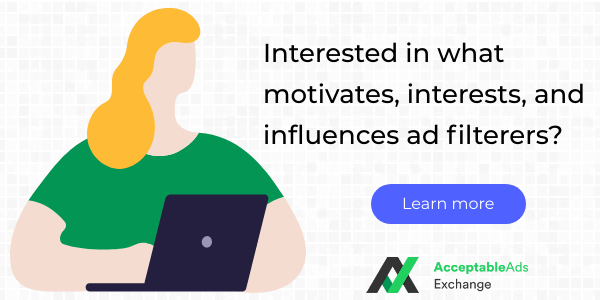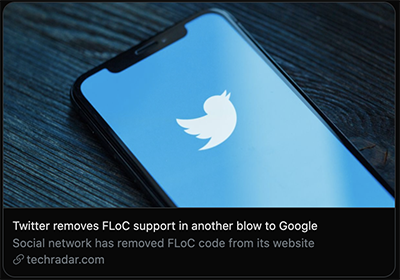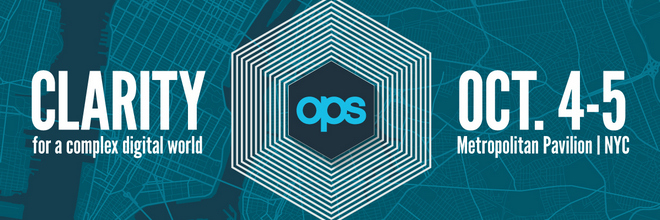| NAI to Consumers: Give Us Your email, We’ll Opt You Out of Hashed email Targeting |
 |
| Isn’t it ironic? The Network Advertising Initiative (NAI) introduced a tool that enables consumers to opt-out of hashed email-based identifiers. Here’s the kicker: consumers need to submit their email address to opt-out. When consumers opt-out of targeted ads but give their email address to a brand to receive messages from that company, “the NAI allows ad tech companies to use consumers' email addresses to serve targeted ads, but only on behalf of the specific marketer that obtained the consumers' opt-in consent.” Consumers would need to visit the NAI site and provide their email addresses to opt out, but many large companies like Facebook and LiveRamp are not NAI members, so this opt-out method won’t work for them. There are many hoops the customer is expected to jump through, and it's like they'll have difficulty understanding the multi-levels of opt-out, what hashed emails are, and the areas this opt-out does not cover? |
| Hashed emails have been simultaneously considered a key ID to the future of digital media and advertising with a touch of concern about people’s privacy. Will this tool ensure consumer privacy? Will enough ad tech players get on board? There are currently a handful of NAI members using the beta version of this opt-out tool. For some NAI members, it hasn’t been an easy sell to use the tool. And how do we close the gap between the NAI hashed email opt-out and companies like Facebook and LiveRamp who use hashed emails and do not adhere to the NAI tool regulations? This only strengthens the importance of publishers emphasizing the value exchange to consumers for collecting an email address to be used for personalization and targeted advertising purposes. |
 |
| What Are the Primary Motivations for Ad Blocking? | ||
| Motivation can best be understood as the fundamental energy that directs and drives our behavior, the root reasons behind what we do, and when, and how. Behaviors themselves are complex and multi-faceted, but motivations? Those are often elegantly simple. That’s certainly the case when examining the three main reasons behind the behavior of blocking ads. Although ad blocking is itself a complex process, the reason that people are initially prompted to block ads isn’t complex at all. The top three reasons that people block ads, according to data gleaned from the GlobalWebIndex (GWI) are as follows: • Too many ads are annoying or irrelevant (59% of respondents) • There are too many ads on the internet. (52.6%) • Ads sometimes contain viruses or bugs. (47.3%) While it’s important to consider the importance of all three motivations, it’s worth pointing out that top motivation—"Too many ads are annoying or irrelevant” is linked to feelings of frustration and annoyance. But what makes these irrelevant ads so frustrating? The most annoying aspects of ads, according to the experts at the Interactive Advertising Bureau, are: Ads that block content, long video ads before short videos, ads that follow down the page as the user scrolls. [And] consumers that use ad blockers are even more annoyed by these ad elements, especially auto-start ads. (Source) This raises an important thought: that ads without these annoying elements, and ads that have more to do with users’ day-to-day lives, are regarded with interest by otherwise skeptical users. That’s a consideration that’s linked to the next two most popular motivations for ad blocking. “There are too many ads on the internet” is an expression of frustration that arises when ads are annoying and irrelevant. And there’s a further connection between annoying, irrelevant ads and “viruses and bugs,” since user frustration with ads is historically tied to worries about the security threat posed by vibrant, intrusive ads. |
||
| Ad blocking users tend to have their collective fingers on the pulse. This 200 million-strong demographic is composed of highly educated, affluent digital natives, and their motivations often reflect larger cultural shifts ahead of time. That’s one reason why AAX is fascinated with ad blocking users, and why we penned our last study Why Block Ads? Behind User Reasons and Motivations. | ||
|
||
| To Survive, Radio Diversifies Rev Streams |
| There have been rumors about the death of radio for decades, yet it’s still here. Barely. Many radio broadcasters are diversifying their revenue streams, and it’s purely for survival reasons. “Audacy is betting on sports gambling, including a $32 million all-cash purchase of QL Gaming Group. Urban One is doubling down in the gaming arena with plans to develop a $600 million casino resort in Richmond. Beasley Media Group is playing in the fast-growing eSports space with a majority stake in the Houston Outlaws, part of the Overwatch League… And keeping its focus squarely on audio, iHeartMedia has made a series of major investments that helped propel it to become the world’s largest podcast company.” |
| If podcasts are radio for hipsters, did podcasts kill radio? Is radio truly in jeopardy now, after decades of its death being greatly exaggerated? Where does this leave radio? How long will companies continue to prop up the medium if there’s no reward down the road? How many years of diversifying revenue streams will broadcasters give radio as time to right the ship? Podcasts may take the reigns as the new radio; podcast networks are scooping up ad tech companies in an effort to add programmatic platforms in-house. In the end, it wasn’t video that killed the radio star; it may be podcasts. |
| Around the Water Cooler |
|
Here's what else we're reading and thinking about this week... Currently, Connexity serves over 1,600 direct merchants and 6,000 publishers. This move will empower Taboola to provide publishers with an easy mechanism for pairing product recommendations with their content. The ecommerce market is primed to become a lucrative future for publishers — eMarketer predicts that US Consumers will spend $933.30 billion on ecommerce in 2021 alone. Only time will tell if Taboola can shed its click-bait history to win pubs over to take advantage of the opportunity. |
 |
||||
|
||||
 |
||||
|
||||
 |
||||
|
| @{optoutfooterhtml}@ |









